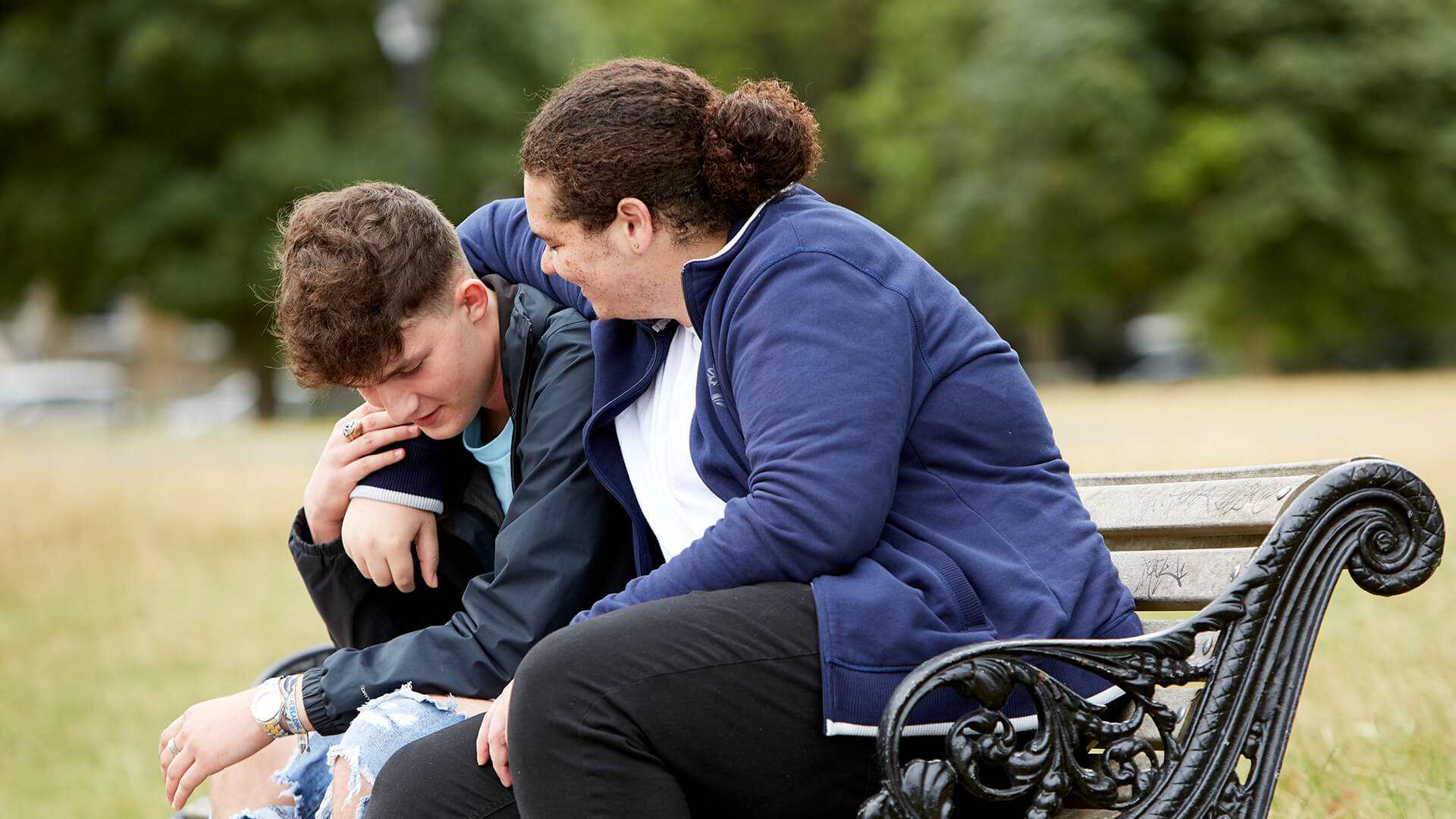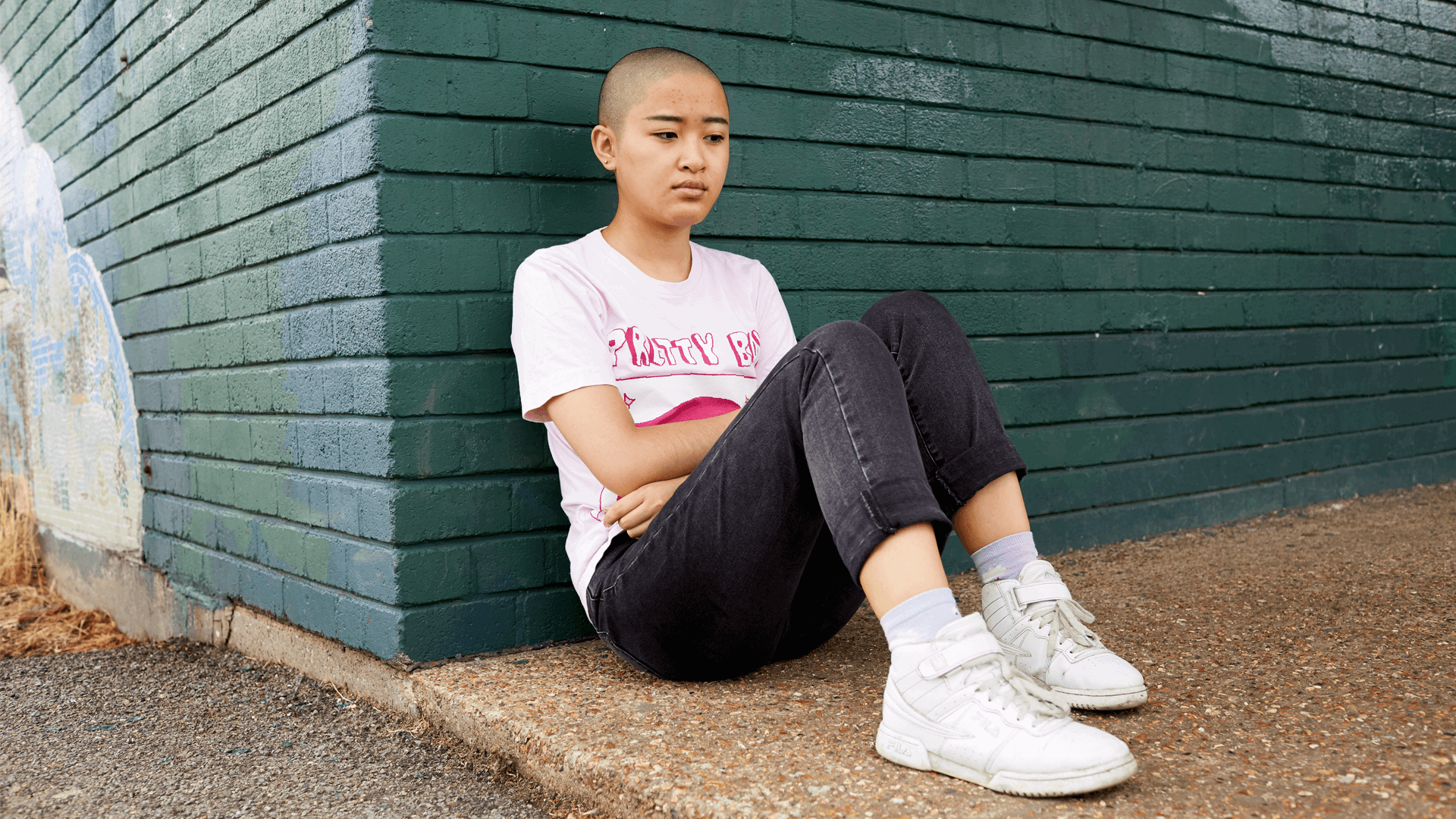Why do you need help?
Sometimes things can seem overwhelming, and it can feel like you can’t cope. You may simply just be having a bad day, or you may have an ongoing mental health problem that needs support. The important thing is not to try to cope on your own.
When you’re struggling, it’s not good to spend too much time alone, especially if you are feeling low and vulnerable. It’s at times like these that you need to be able to talk to someone. Don’t be afraid to ask for help.
What's stopping you asking for help?
You might not like asking for help. You may feel that you don’t want to burden other people. You may worry about what they might think about you, or that they could tell other people. You may even be afraid that they’ll laugh at you.
But the truth is, people who care about you will want to help you. You just have to ask.
Opening up for the first time is the hardest part - it becomes easier after that.

Who can you ask for help?
- Your family – parents or carers, siblings, grandparents, aunts, uncles or cousins
- Trusted friends – your own friends, or friends of the family, neighbours
- Professionals – your GP, a doctor or nurse, a social worker
- Colleagues or people you work with
- A community support group or online community
Even if you’re feeling completely alone right now and that you have nowhere to turn or that nobody cares, you are not alone. There are lots of amazing helplines and online services (listed at the bottom of this page) where you can get support from trained professionals who really do care and want to help you through it.
You deserve help and support
Sometimes when you reach out for help, the person you talk to may not react the way you hoped they would or give you the positive support you need, which can be really difficult. But if that happens, their reaction is about them, not you.
Not everyone will react in the same way. Please don’t let this discourage you from reaching out again. Remember there are lots of other people who want to help you.
You deserve help and support – don’t forget that.

I can’t remember too much about the call, but I do remember that I had never felt so heard and understood until that moment. I was bawling my eyes out, and the person on the end of the phone was warm, kind and patient. They lifted an enormous weight off me simply by being there for me in my moment of crisis.
How to ask for help
It may be difficult to talk about your feelings. But, as the saying goes, “a problem shared is a problem halved,” and you’ll probably feel better simply for having talked to someone.
When you’re feeling down, it’s important that you are not struggling on your own. There is lots of help and support available – you just have to reach out to get it.
Who would you feel most comfortable talking to? Many of us prefer talking to family or friends, but you may prefer to talk to professionals, support groups, helplines or online discussion forums.
Do you simply want to be listened to? Would you like more practical or emotional support? It's okay if you don't know, but it can help to think about what you would like to achieve.
The other person will then have a better idea about how to try and help you.
Choose a good time and somewhere you feel comfortable, so you can talk uninterrupted in a relaxed environment.
Write down the things you want to say so you remember to include them in your conversation. Or you could let the other person read your notes if talking is difficult.
How to speak to your GP about mental health
It can be really scary talking to your doctor about mental health for the first time, but there's no need to be scared - it's their job to help.
Have a look at our guide to speaking to your GP about your mental health for more tips and advice.
Simply talking about my problems out loud to people that supported me was freeing.
More information and support
Where to find support
Speak to someone
Below are some helplines and websites where you can find information, advice or just a listening ear from someone who gets it.
-
Childline
If you’re under 19 you can confidentially call, chat online or email about any problem big or small.
Sign up for a free Childline locker (real name or email address not needed) to use their free 1-2-1 counsellor chat and email support service.
Can provide a BSL interpreter if you are deaf or hearing-impaired.
Hosts online message boards where you can share your experiences, have fun and get support from other young people in similar situations.
- Opening times:
- 24/7
-
The Mix
Offers support to anyone under 25 about anything that’s troubling them.
Email support available via their online contact form.
Free 1-2-1 webchat service available.
Free short-term counselling service available.
- Opening times:
- 3pm - 12am, seven days a week





